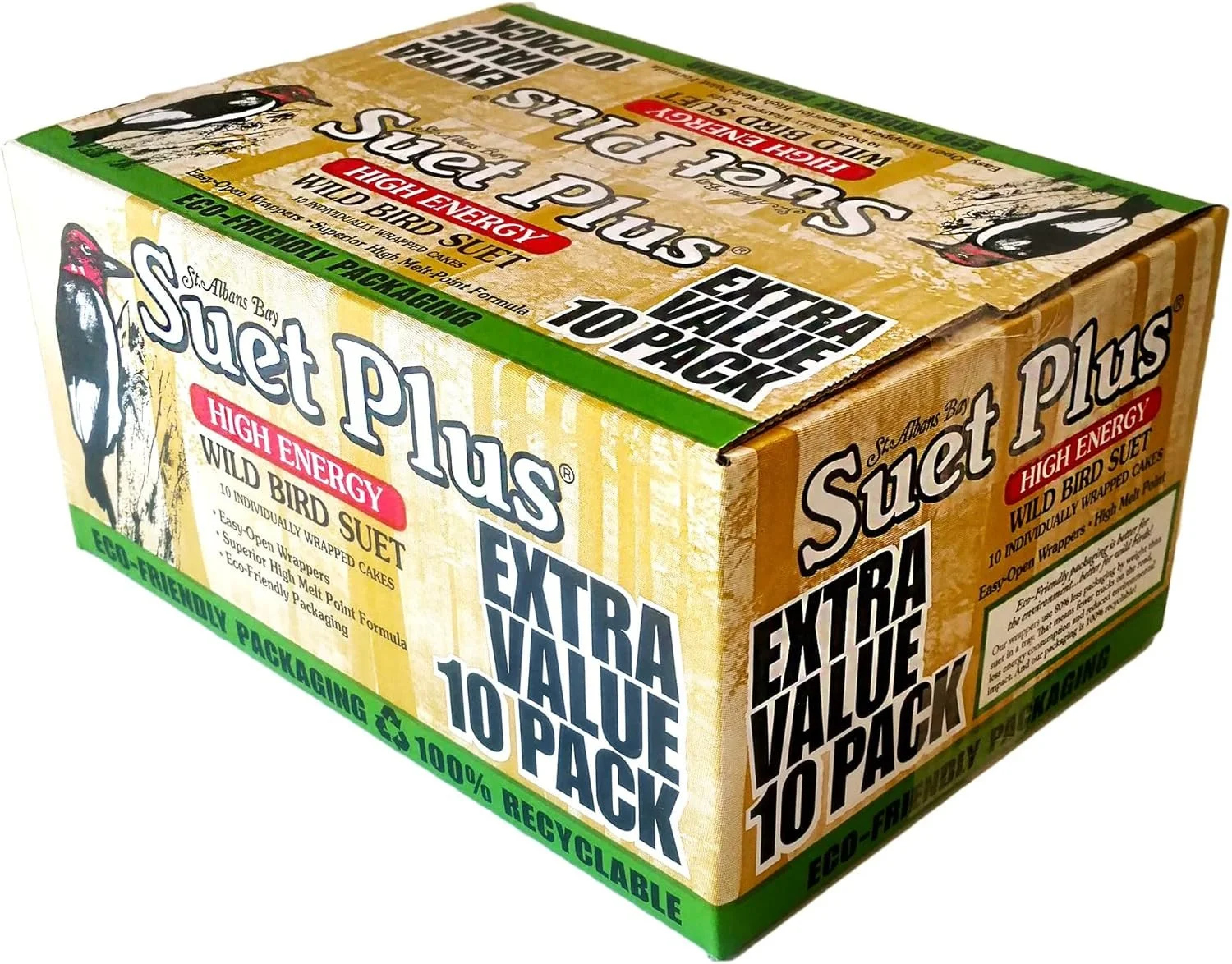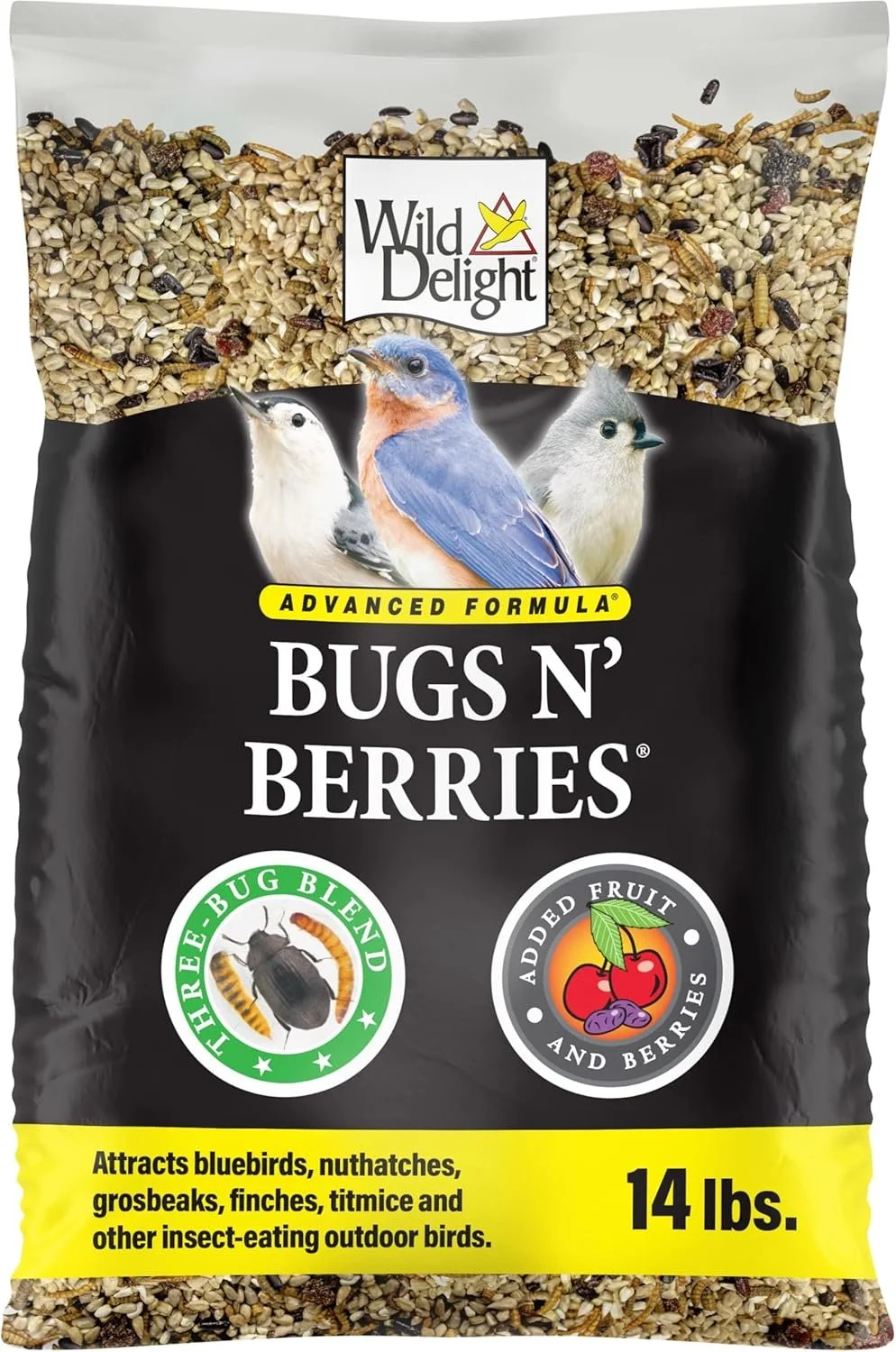Gifts for the Birds
Thoughtful, Practical & Wildly Loved
Take care of your backyard wild birds
Providing high-quality food, water, and safe feeding stations during the lean months supports birds’ energy needs, improves survival through cold snaps, and brings nonstop backyard joy. Thoughtful gifts focus on nutrition, safety (for birds and your property), and year-round habitat improvements.
Top Picks (product-by-product - what to buy and why
LCSEVEN Squirrel-proof Feeder - practical and budget-friendly
If squirrels steal the show at your feeders, a sturdy, well-designed squirrel-proof feeder is one of the best gifts you can give birds (and your patience). The LCSEVEN designs include metal tops, reinforced seed tubes, and cages have weight-activated perches to discourage chewing, lid-lifting and seed-stealing — features that help keep seed available to birds, not persistent rodents.
Buy tips: place on a pole with a proper baffle, keep feeding distances ( at least 8’ from trunks and overhanging limbs to reduce squirrel jumping, and choose seed mixes suited to your target species.
Smart Bird Feeder with Camera - watch the magic happen
Smart feeders with built-in cameras (like Bird Buddy, Birdfy and newer entrants) let you livestream and capture crisp images of visitors and often include AI identification tools and cloud galleries. These are excellent gifts for birdwatchers who love close-up behavior and identification. Recent reviews and comparisons show the market now has several solid options — from simple camera-feeder combos to premium units with AI identification and cloud services. If you want “living room birding,” this is the route.
Buy tips: check image resolution, weatherproofing, power options (solar vs. plug), and whether the companion app stores photos to the cloud or locally.
Raw, shelled peanuts - high-energy, bird-friendly snack
Shelled (meaning removed from the hard outer shell) peanuts are a nutritious, high-fat treat that many birds love, particularly jays, woodpeckers, titmice, and nuthatches Although I will tell you, peanuts are the favorite of ALL my backyard birds when winter hits hard. Cardinals, finches and sparrows (even my tiny Chipping Sparrows) will forage for hyper-nutritious peanut pieces in January and February. In-the-shell peanuts are fine for jays and woodpeckers but shelled peanut kernels or pieces are best for littler birds. Buy from reputable sources and store them cool and dry to avoid molds or toxins from long-term storage.
Serve suggestions: use peanut feeders, mix into suet cakes, or sprinkle inside platform feeders. NO salted or flavored nuts.
St. Alban’s Bay Suet Plus - high-energy suet cakes for winter visitors
Suet cakes are winter staples for insectivores and woodpeckers that need concentrated energy. St. Alban’s Bay suet cakes offer melt-resistant formulas that hold together in weather from freezes to summer heat. Suet cakes usually contain beef suet, cracked corn, sunflower and often peanut pieces and fruit that can attract a wide variety of species. Suet is especially valuable on cold, windy days when birds burn calories fast.
Serve tips: hang suet in wire cages made for the purpose on bird station poles or on seed feeders.
Bugs’n Berries - Blends for Bluebirds with protein plus fruit for cavity-nesters
Bluebirds and other insect-loving species thrive on mixes that combine dried mealworms (for extra protein), nut pieces and fruit. These blends are especially welcome during colder months or when natural insect prey is scarce. These blends mimic the insect-rich diet of bluebirds and to attract them to specialty feeders or platform trays. If you have bluebirds in your suburban or rural lot, consider encouraging bluebirds to your yard with blends and nest boxes. But have patience - they may be a little slow to become accustomed to your offerings.
Serve tips: offer on a raised platform (maybe on a fence post) or tray placed in open areas with nearby perches, water and shelter.
Birdbath Heater/De-icer - open water in winter is priceless
Birds need water for drinking and bathing even in freezing weather. A thermostatically controlled birdbath heater or de-icer (K&H and similar brands) keeps water unfrozen and safe for wildlife, automatically cycling to maintain an open surface. For many species, access to liquid water determines whether they visit your yard in winter.
Safety Note: follow manufacturer instructions on wattage and installation; use shallow basins and keep electrical connections dry.
DIY Gifts - the birds will devour them
Fruit and Popcorn Garland
String unsweetened popcorn (air-popped) and unsulfured dried fruit (cranberries, apple rings) on cotton twine. Hang away from heavy wind and predators. Never use string with metal or dyes.
Fresh chopped fruit salad
Apples, pear, oranges, seedless grapes, raisins can be chopped and offered in a shallow tray or platform feeder. Only offer a small amount during non-freezing weather and replace daily. The fruit has the potential to attract raccoons and other critters so keep the area clean daily to prevent unwelcome guests.
A few reminders
Birds’ digestive systems are sensitive (regardless of what you’ve seen gulls eat) NO salted or flavored human food and NEVER bread, baked goods, sweets or snacks. If it’s not good as a primary food for humans, it’s not good for birds.
Bird food does not need flavor or scent (it’s for marketing not consumption). Very few birds have a sense of smell so artificial chemicals to add fragrance is unnecessary.
Clean feeders and bird baths often. (no harsh chemical cleansers please.)
Consider landscaping with native plants for a transformational present. Planting berry and nut-producing shrubs and trees provides natural foods, supports insects (food for nestlings) and offer shelter for all. It will attract more birds (and butterflies!) to your yard, provide you with low-maintenance beauty and conserve water. Consider
serviceberry
winterberry
viburnums
chokecherry
sumac
hollies and native nut trees (oaks, hickories)
all excellent for backyard bird habitat. Consult local native-plant guides to choose species suited to your USDA zone and property conditions.
Wrap-up: make it safe, nutritious and habitat-focused
Any time is the perfect time to show your local birds some love. Whether you gift a squirrel-proof feeder so smaller birds get their fill, give a camera feeder to share backyard moments with loved ones, create fruit garlands, or plant berry-bearing shrubs that will feed birds for decades — thoughtful choices help birds survive and thrive. Their habitat is diminishing daily. We can help provide natural food while we work to save their habitat from development.






